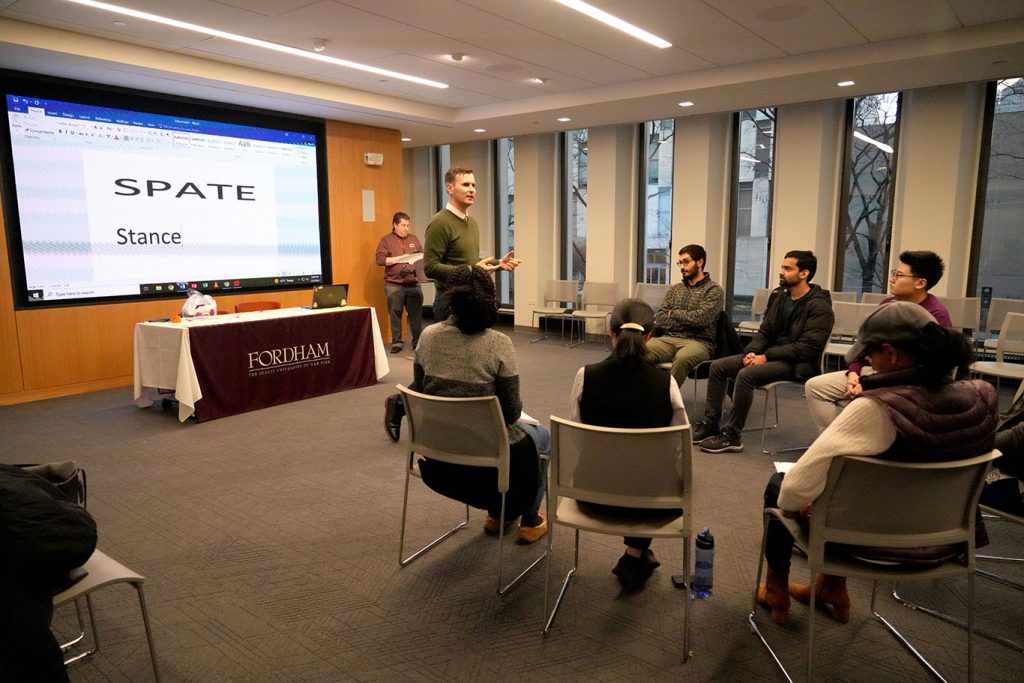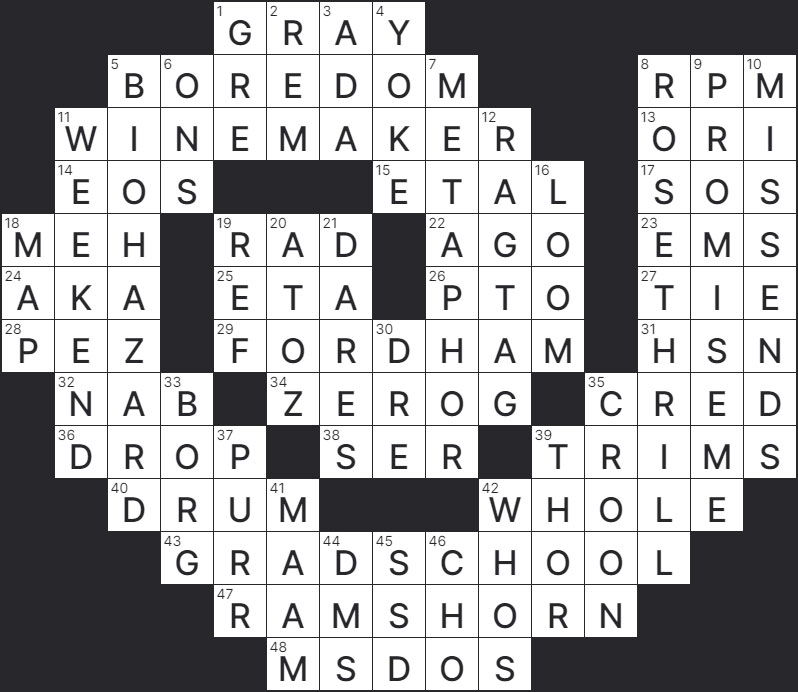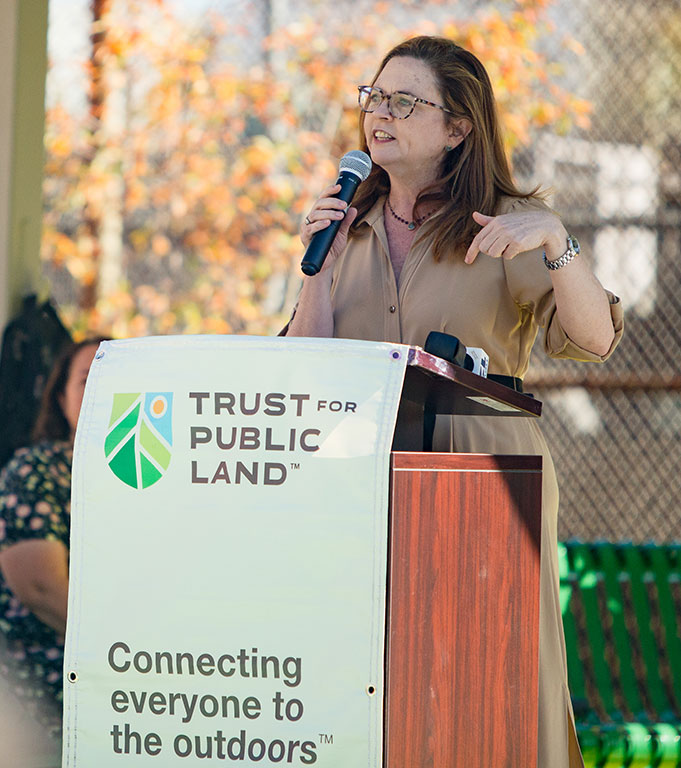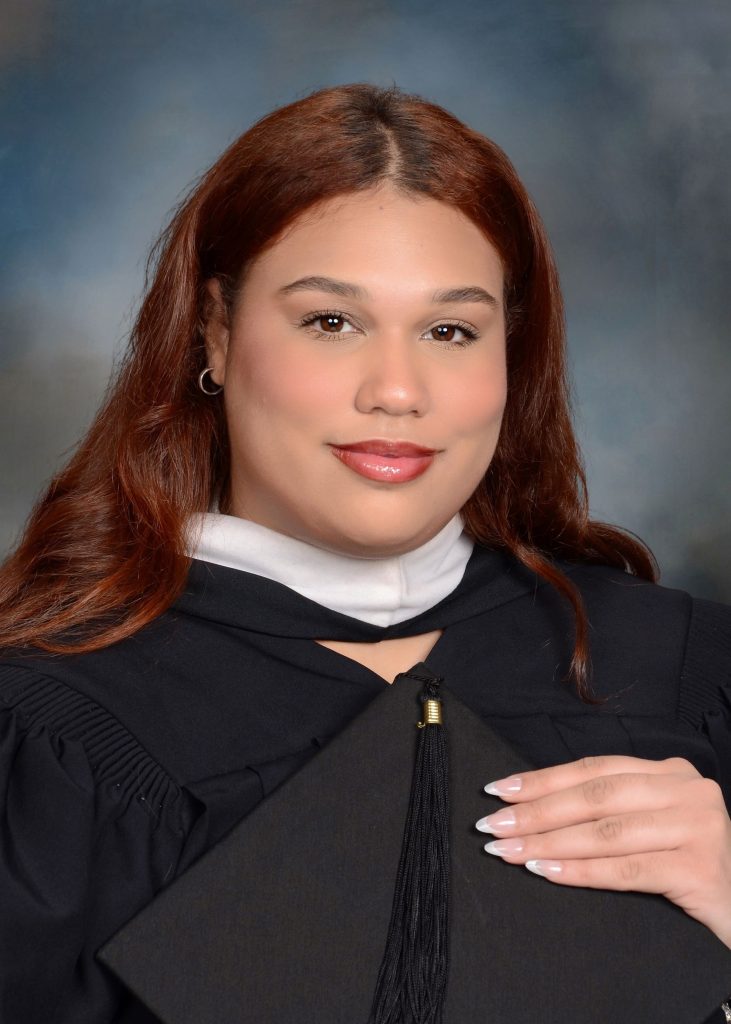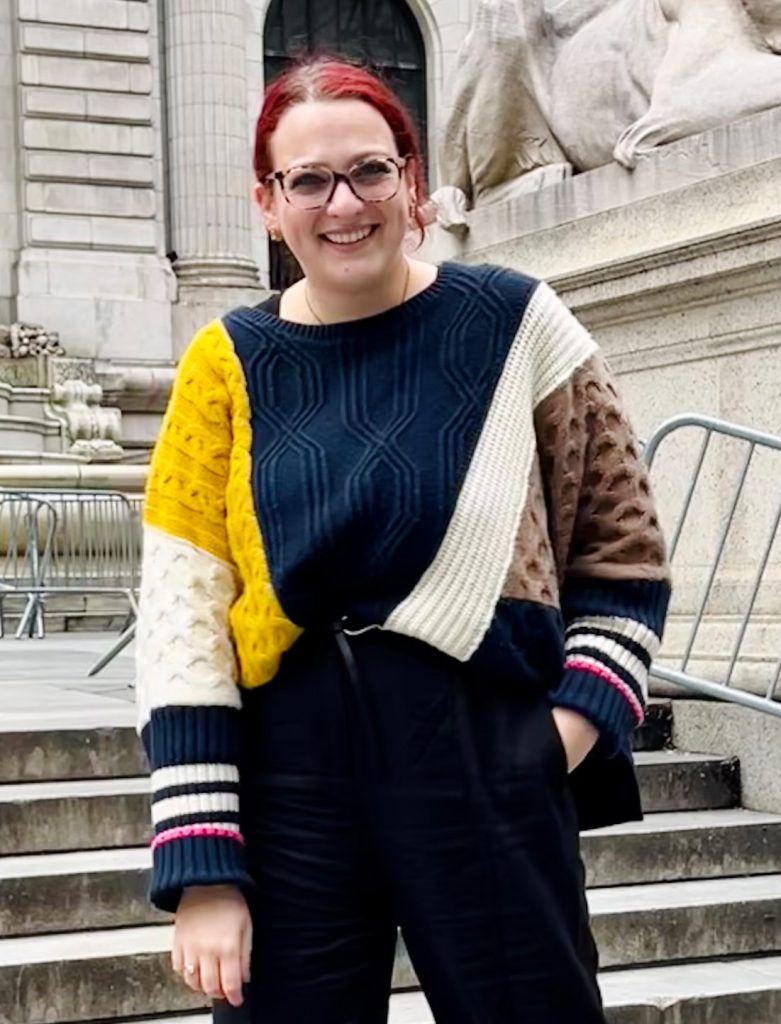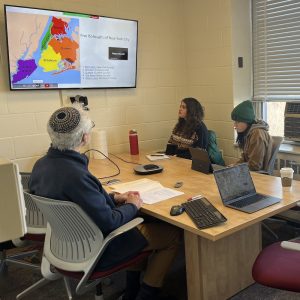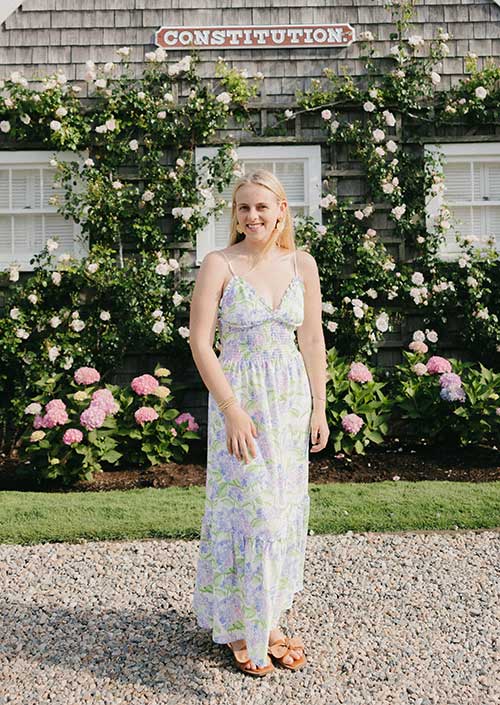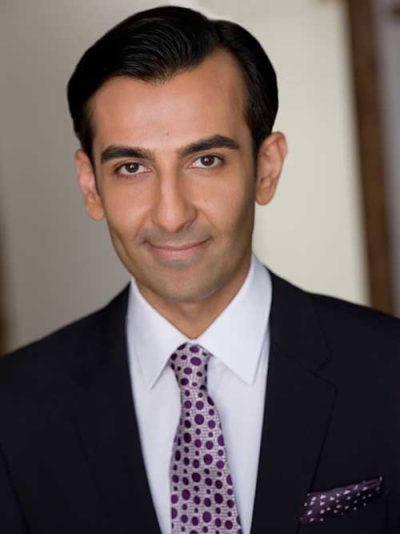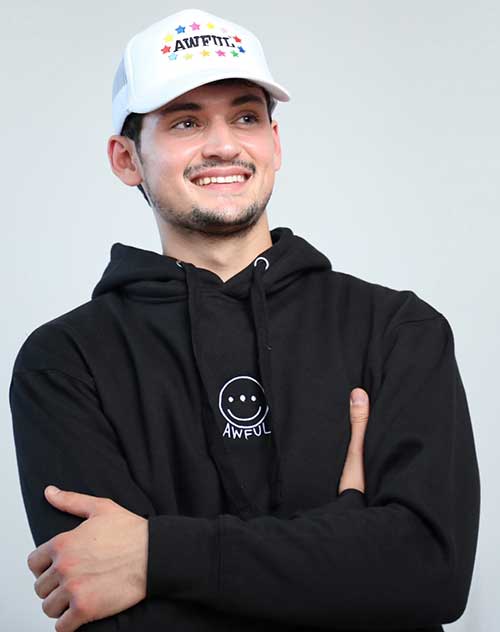On Jan. 4, Rico Lucenti became one of the few student vets to receive the President’s Volunteer Service Award, administered by AmeriCorps and presented at the Student Veterans of America (SVA) annual convention in Colorado Springs.
He said the award reflects well on Fordham, which he said has “some of the most talented student veterans in the entire country.”
“My accomplishments are one of many stories that are found on campus,” he said.
‘An Example for Others’
Lucenti spent more than two decades serving his country in the military—but launched into a whole new career of service when he came to Fordham.
He was a constant presence in the University’s Office of Military and Veterans Services, volunteering at events and helping other student vets. Last May, he took part in Fordham’s Global Outreach program, chaperoning a trip to El Paso, Texas, where he and other students learned about immigration issues. He was active in Fordham’s SVA chapter, and plans to stay involved as an adviser to future student vets—even though he finished his political science degree at Fordham’s School of Professional and Continuing Studies in December.
Matthew Butler, PCS ’17, Fordham’s senior director of military and veterans’ services, said Lucenti “exemplifies the best of our student veterans and is an example for others to follow” because of his leadership and dedication.
‘Never More Nervous’
Lucenti is a New York City native whose mother, then named Larnice Thompson—his “greatest drill instructor,” he said—was an adjunct professor at the Graduate School of Education in the 1990s.

He roamed the hallways at the Lincoln Center campus as a teenager, and Fordham was his “dream school,” but he still felt trepidation upon entering its classrooms for the first time a few decades later.
He had spent 24 years in the Navy, serving in combat zones, working at the Pentagon, rising high in the enlisted ranks, but was “never more nervous” than when he first entered a Fordham classroom, worrying about being “the old guy” in class.
But instead, “I felt like my experiences were appreciated and celebrated by many of the professors,” as well as students, he said. “A lot of the public policy that we were studying—I actually lived that history.”
‘The Dream College Experience’
His academic achievements and SVA involvement “put me in circles with people who were like-minded, but very driven, very focused, and very much engaged in the Fordham community,” he said. “At 44 years old, I had the dream college experience.”
Last year, he was selected as an SVA Leadership Institute Fellow and traveled to Washington, D.C., where he and other fellows got to meet with the secretaries of defense, education, and veterans affairs, as well as First Lady Jill Biden. It was a great opportunity, he said, to advocate for support for veterans and military-connected families. “This isn’t just about veterans, it’s also the spouses and the children, especially children of the fallen,” he said.
A former cybersecurity manager in the Navy, Lucenti has moved on to a master’s degree program at New York University in cybersecurity risk and strategy.
He praised Fordham’s SVA chapter and the Office of Military and Veterans’ Services for how they help student veterans make the transition to Fordham and harness new opportunities. “Fordham really opened my eyes,” he said.
]]>By the start of the next school year, students would be required to disconnect from their devices during school hours, “bell to bell,” the governor said, citing Pew research that found 72% of high school teachers report cell phones are a major problem in their classrooms. Implementation would be left up to the schools, which could use the allotted funding to purchase equipment, like pouches or cubbies, and to train personnel to enforce the ban.
New York School Cellphone Ban
New York is the latest state to push for banning phones in schools, a movement that’s gaining ground in both red and blue states. Ohio, South Carolina, Virginia, California, Florida, Indiana, Minnesota, and Louisiana have all put measures in place to restrict cellphone use during the school day. Proponents, including a major New York teacher’s union, say the bans not only remove a source of distraction, they also give students a much-needed break from addictive devices that can stunt their social skills, their attention spans, and their emotional well-being.
“Our kids will finally be free of the endless distraction of social media and all the mental health pressures that come with it,” Hochul said Tuesday.
Opposition from Parents
But not everyone is pleased. According to Elizabeth Stosich, associate professor and associate chair of the Division of Educational Leadership, Administration, and Policy at Fordham’s Graduate School of Education, some parents would prefer their kids to be a call or a text away, especially given concerns over gun violence. Teachers and administrators who create no-phone policies in a piecemeal fashion often find themselves in conflict with these parents. Stosich is in favor of the move from Albany to ban phones in schools statewide.
“Teachers don’t want to police cell phones. They want to teach kids. I think this can shift norms and expectations to be—We don’t use cellphones in schools. And it’s not just me as a teacher saying this. It’s not just me as a principal who has to fight parents, or even as a superintendent with angry parents at my school board meetings. This is a statewide policy,” she said.
Inside a Phone-Free Classroom
According to Xiaying “Summer” Li, a high school foreign language teacher in New York City and a Ph.D. student at the Graduate School of Education, banning phones in school has benefits. She’s had a “no phones” rule for about three years now and says it has transformed the dynamics of her classroom for the better.
“In the beginning, students gave me lots of push-back. After two weeks, the first thing students would do was turn in their phones to me,” said Li. Rather than seeing kids texting or scrolling TikTok in class, she now sees them watching, listening, and engaging with the material.
“That is the reason I support this policy. I believe we will see a tremendous change in academic performance and discipline,” she said.
]]>Spoiler Alert: The solution to the fall/winter puzzle is posted below. If you’d like to receive a copy of the print edition, write to us at [email protected].
How did you get interested in creating crossword puzzles, and how long did it take before you published your first one?
Growing up, I solved Sunday New York Times puzzles with my dad. Soon after my studies at Fordham, I found myself wondering what it took to make crosswords and started looking into it. I officially started constructing crosswords in November 2016. I was unemployed at the time and in desperate need of a distraction from world events.
Incredibly, I went from purchasing crossword construction software to getting my first puzzle accepted—a Sunday New York Times puzzle, no less—in just six weeks. I was guided by an incredible mentor, Nancy Salomon, and spurred on by an insatiable hyperfixation with the task of creating a satisfying, interesting, unique crossword. Since then, I’ve immersed myself in the crossword community, learned from so many people, and in 2022 began editing puzzles for two publications—AVCX and Puzzmo. It’s incredibly enriching work.
What do you think makes a crossword puzzle satisfying for people to solve? And what do you hope solvers feel when they complete one of your puzzles?
As a solver, I enjoy accessible, whimsical puzzles that balance wordplay, trivia, and pop culture references, so those are the kinds of crosswords I like to make. Crosswords are an art form, a means of expressing oneself. Each puzzle I make has personal touches and feels special to me. I hope that solvers learn a little something from my puzzles, have some nice “ah ha” moments, and finish with a smile on their face.
Do you have a favorite puzzle you created or some favorite clues you came up with?
I have a few standout favorites among the hundreds of puzzles I’ve made. One that comes to mind is a Sunday New York Times crossword called “All Aflutter,” in which I used grid art and the placement of a single extra letter in the grid to demonstrate the philosophical concept of the butterfly effect for the solver. I remember that when this idea struck me, it consumed a whole day—I sat in bed, obsessively designing the grid for hours and hours as it came together. I knew I was onto something special.
What’s your favorite clue and answer in the puzzle you created for the fall/winter issue of the Fordham mag?
I love the wordplay clue for WINEMAKER: “One working with vintage materials?” It’s always fun to come up with a fresh new misdirect, and I thought that was a clever one. I also enjoyed being able to be self-referential with the FORDHAM clue, putting myself in the same category as some major celebs! How fun is that?
Do you ever receive feedback on your puzzles, and is there a reaction or anecdote that sticks with you?
In April 2024, I attended the American Crossword Puzzle Tournament in Stamford, Connecticut, for the first time. We all had lanyards with our names on them, and I was totally starstruck by some major figures in the crossword community that I got to meet. It was surreal, then, to have a few people come up to me and tell me that they love my puzzles. Certainly that’s the closest I’ll ever be to experiencing fame!
You earned a master’s degree in mental health counseling from Fordham’s Graduate School of Education in 2015. Why Fordham, and what was the grad-school experience like for you?
After graduating from Vassar in 2013, I decided I wanted to work in higher education, and that a counseling degree was the way to go. The Fordham program appealed to me because of its focus on multicultural approaches to counseling, and I loved the idea of going to school in the center of Manhattan. I greatly enjoyed my classes at Fordham; the teachers were extremely knowledgeable, and I found the curriculum to be well-designed.
Crosswords can be mentally stimulating, even a kind of meditative experience for people. How do you view them when it comes to education and mental health? Is there a connection to your graduate studies at Fordham?
One thing I love about solving crosswords is that there are countless ways to get to the right answer. People come to the table with different knowledge and lived experience, which means that the way I solve a crossword will differ from how you might solve it. The experience is really an exercise in exploration, of uncovering the grid, piece by piece, until it all comes together in the end.
I see a connection here with mental health. Therapy is a tool we use to explore our beliefs, relationships, and traumas, unknotting the messy knots that we get caught up in. After an especially effective therapy session, I feel a sense of satisfaction, relief, and gained knowledge about myself and the world. It is an exercise in exploration, in discovery. I have experienced similar feelings after solving a crossword.
Anything you’d like to add that I didn’t bring up?
If you’re interested in following more about me and my crossword work, or want to reach out with a question or comment, please feel free to find me on Bluesky, under the username Livienna. You can also find my daily categories game, Overlapt, over at the Puzzle Society!
Interview conducted, edited, and condensed by Ryan Stellabotte.
Solution to the Puzzle in the Fall/Winter 2024 Print Edition of Fordham Magazine
]]>Funding for the new outdoor play space was secured with help from Fordham’s Center for Educational Partnerships, a part of the University’s Graduate School of Education. The center partnered with MS 331 beginning in 2015, providing administrative help and assisting with tasks such as funding requests. GSE graduate Serapha Cruz is the principal of MS 331, which shares the complex with an elementary school, PS 306X.
Anita Batisti, Ph.D. associate dean and director of the Center for Educational Partnerships, said that one of Fordham’s mandates is to improve the wellness and well-being of students and the community. Studies have shown that clean, well-kept playground equipment helps students feel more connected to their community while promoting exercise and play.
“It really was a natural progression for us to do this,” Batisti said.
“With our skills for raising money and helping to prepare proposals and bids, we were able to move this process along through the various funding sources.”
Fordham President Tania Tetlow joined Batisti at the Oct. 25 ribbon-cutting ceremony for the 46,0000-square-foot play area. Also in attendance were GSE Acting Dean Ji Seon Lee, U.S. Representative Ritchie Torres; Bronx Borough President Vanessa Gibson; Councilmember Pierina Ana Sanchez, who helped secure funding for the project; and representatives from the Trust for Public Land and the Department of Environmental Protection, which oversaw the design and construction of the space.
When work on the $2.85 million project began in 2021, the space in the Morris Heights section of the Bronx was a cracked, crumbling stretch of asphalt. It now features a full basketball court, a volleyball court, game tables, an outdoor classroom, a gazebo, and play equipment for younger children. There is also fitness equipment for older students and community members, benches, a running track, and a turf field for soccer and football.
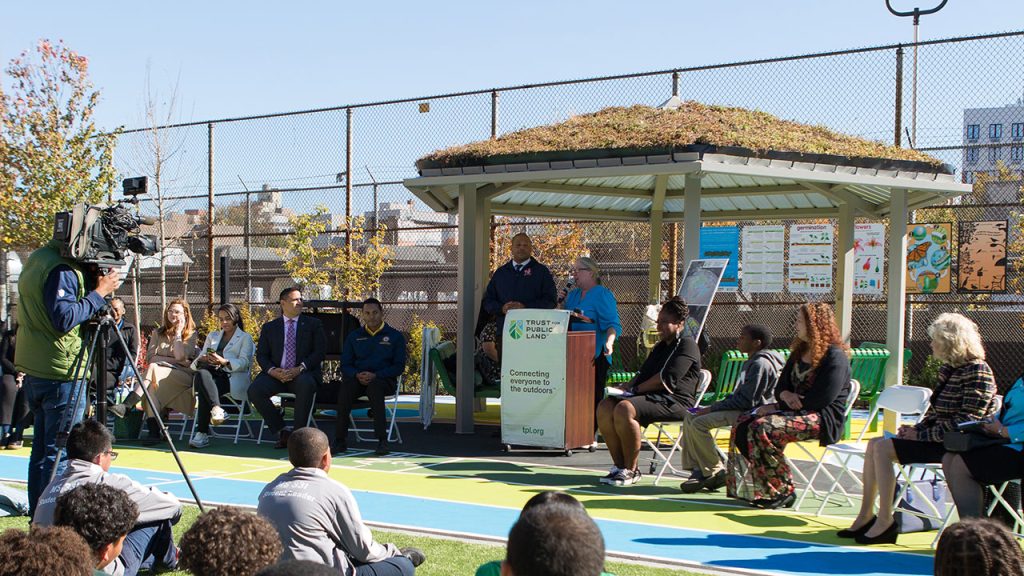
“One of the issues we’re seeing in education is retention rates for teachers,” said George-Puskar. “Enrollment numbers for schools of education are down because of the already challenging demands of being a teacher, coupling that with concerns about safety.”
“I find future teachers to be extremely brave,” she added. “The world we live in today can be really scary, and there are fears about safety in schools. Instead of shying away from that, they are running straight to it, so many of them. It’s because of wanting to make a change within our schools and within our world.”
James Smythe, a student teacher in the Fordham five-year accelerated program, said, “Being a teacher is hard enough. I’ve got a lot on my plate, and I’m only a student teacher. There’s real, actual teachers out there that I work with, and I see them put in everything they have every single day, and there’s still more they have to do. And now they’ve got to learn how to fight a gunman?”
“I would hope that teachers and schools would get the attention they deserve,” Smythe added. “They need support. They are not going to walk away from this, because they love it. … We’re going to have to do well on behalf of these teachers. And I would hope that lawmakers would see that, and there would be an American cultural shift that would see that, to a point where we would see that [being]an educator is one of the most noble things you can do, and to be honored as such.”
]]>Mary Olivette Bookman, another Fordham student teacher, said, “We learned that the best way to prevent a potential school shooting is to create that positive classroom environment where students feel supported and loved. If they know that there are other ways to express themselves … so the alternative never comes to their mind, all they think of is, ‘I have support. I have love. I am important, and my classmates are important.'”
“If anything, it strengthens my resolve on the importance of teachers and the role we can have in students’ lives to be a source of positive guidance and support,” she added. “Regardless of what happens, I at least know that I did what I could to try to make a difference in a student’s life. … That makes me feel that … what I do as a teacher matters.”
The annual Block Party reunion, held June 7, kicked off with a late afternoon guided campus tour and a jazz performance by a group of student and faculty musicians. Alumni from five schools—Fordham College at Lincoln Center, the Gabelli School of Business, the Graduate School of Education, the Graduate School of Social Service, and the School of Professional and Continuing Studies—gathered for receptions throughout campus that honored distinguished alumni and celebrated retiring faculty. After the school-specific receptions, alumni and guests gathered on the Plaza, where they spent the night enjoying refreshments and a DJ.
Take a look at the full set of photos from the evening!
Save the date for next year’s Block Party: Friday, June 20!
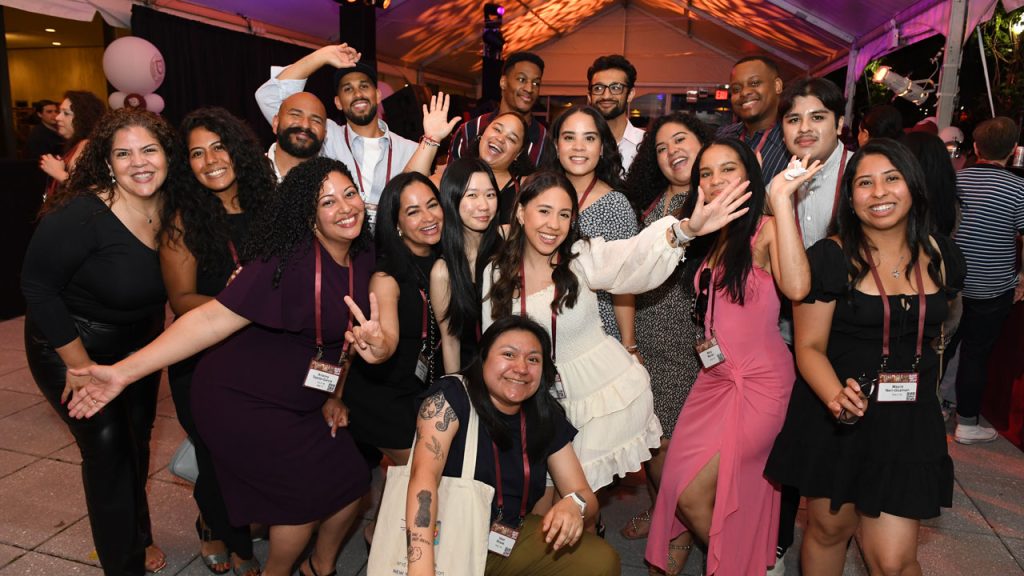
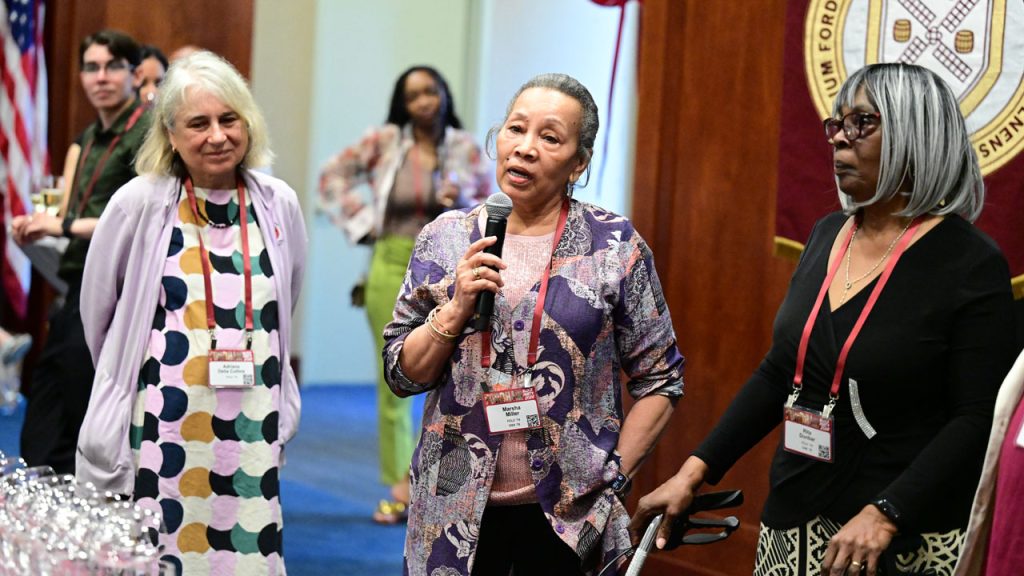

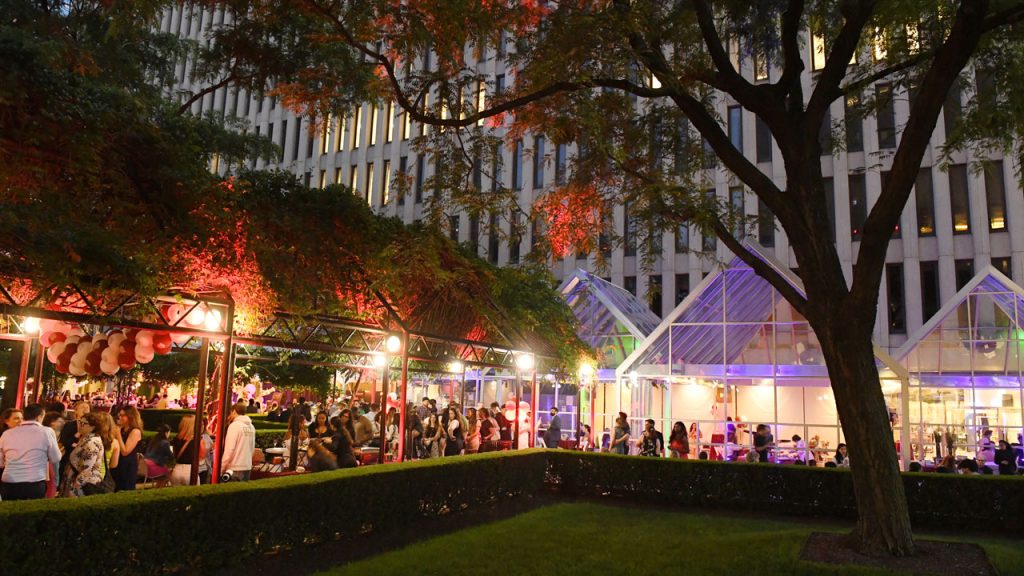
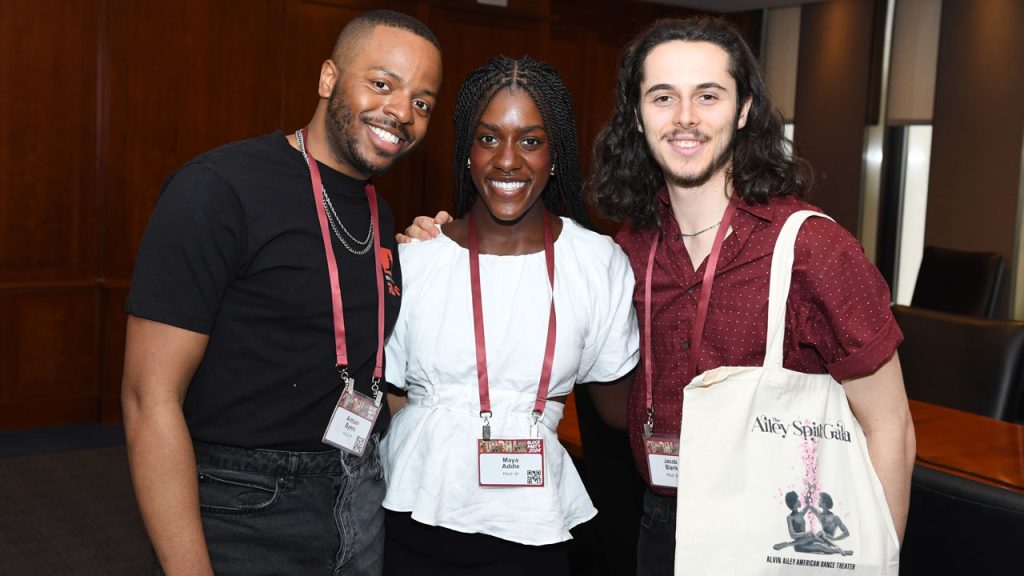
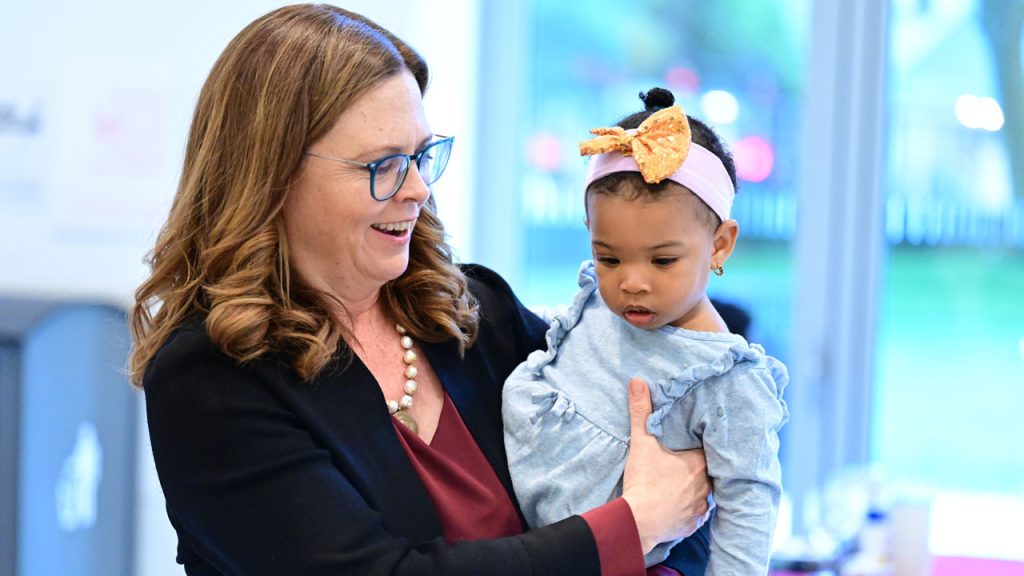
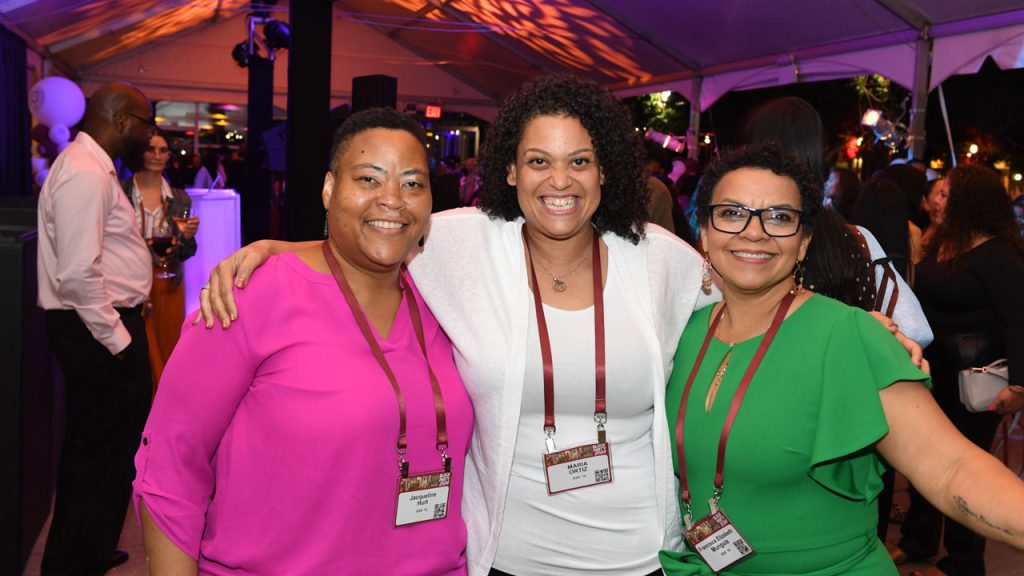
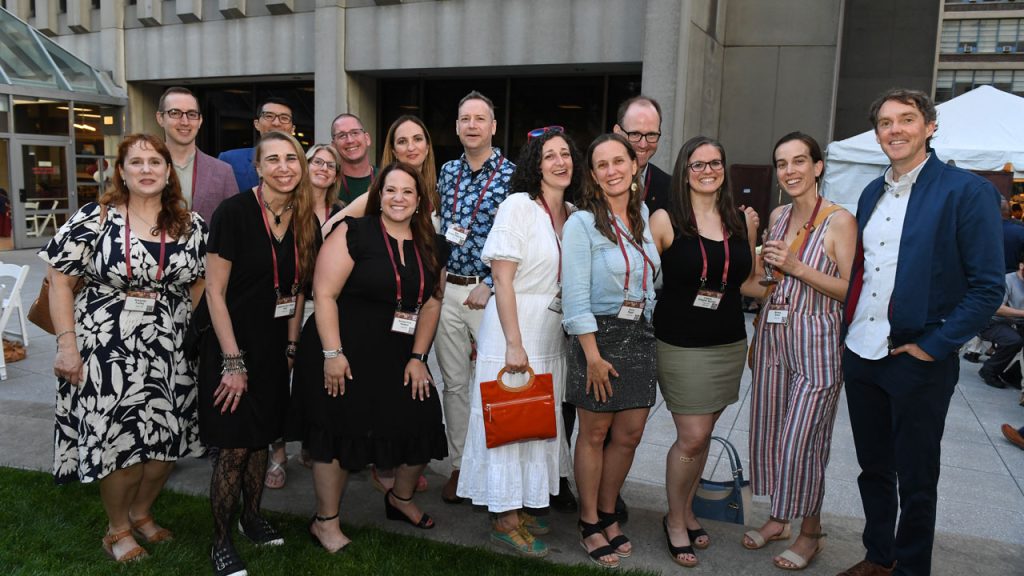
Awardees will travel to countries in Asia, the Americas, Africa, and Europe for 10 months of teaching and research, immersing themselves in new cultures. The University announced 12 Fulbright winners in early May; the number rose to 14 a few weeks later, and has now risen to 15, because of awards granted to students who had been named Fulbright alternates.
“We are overjoyed that we have a record number of Fulbright awardees this year! It’s a testament to the outstanding work of our students and alumni, and the faculty and staff who support them,” said Lorna Ronald, Ph.D., director of Fordham’s Office of Prestigious Fellowships.
She noted that Fordham’s number of applicants has risen from 25 to 38 over the past two years. “We’re working hard to let all our students know that they can apply,” she said. “There is no GPA cutoff or ‘right’ type of student. Fordham students are interested in service, and many have studied abroad, speak multiple languages, or come from multicultural backgrounds, so they make excellent Fulbright candidates.”
In February, for the sixth time, the U.S. State Department recognized Fordham for being one of the colleges and universities with the highest number of Fulbright awardees.
A Focus on Immigrants and Refugees
Jennifer Espinal, FCRH ’24, who grew up in the Bronx, is headed to Spain’s La Rioja province to work as an English teaching assistant. She hopes to expand her knowledge of Spanish—“I speak very ‘Nuyorican’ Spanish,” she joked—and learn more about the nation’s culture and its large refugee population.
Espinal double majored in history and Latin American and Latino studies, with a political science minor, and wants to become an attorney who serves immigrant families. She comes from one herself—her parents immigrated from the Dominican Republic, and her mother works as a custodian at the Rose Hill campus.
Seeing her daughter graduate on May 18 was an emotional moment. “None of this would be possible without you,” Jennifer told her in Spanish that morning. (Watch Espinal and other first-generation graduates give thanks to their families at commencement.)
Making Early Childhood Education Inclusive
Bailey Kaufman, a doctoral candidate at the Graduate School of Education and adjunct professor at the school, will be traveling to the Slovak Republic to study early childhood math instruction, as well as the cultural biases in educational materials that can hinder learning.
One aspect of her research is the bias in picture books used to teach math and how that makes them less accessible to children from the country’s Romani minority. Romani children are already marginalized, Kaufman said, noting that only a third of them are enrolled in early childhood programs, compared with the republic’s national average of 72%.
Based at the University of Prešov, she’ll work with European organizations seeking to improve early childhood education and build a comparative analysis. A question she hopes to answer, she said, is “how are other countries approaching mathematics in early childhood and training future teachers, and what can we take from that and bring to U.S. institutions of higher education?”
Studying National Identity in Wales
In addition to the 15 Fulbright scholarships, one student was accepted into a different Fulbright program, the highly competitive U.K. Summer Institute for first- and second-year college students. Mackenzie Saenz De Viteri, a CSTEP Summer Scholar and first-year student at Fordham College at Lincoln Center, will spend three weeks at Aberystwyth University in Wales.
She looks forward to learning directly about Wales’ history and identity, as well as how the country attained independence and structured its government, which may hold lessons for Puerto Rico, said De Viteri, an international studies and anthropology double major from Central Islip, New York.
Her interest is “taking examples from other parts of the world who have similar dilemmas and using that to help solve current issues,” said De Viteri, a first-generation college student who has family in Puerto Rico.
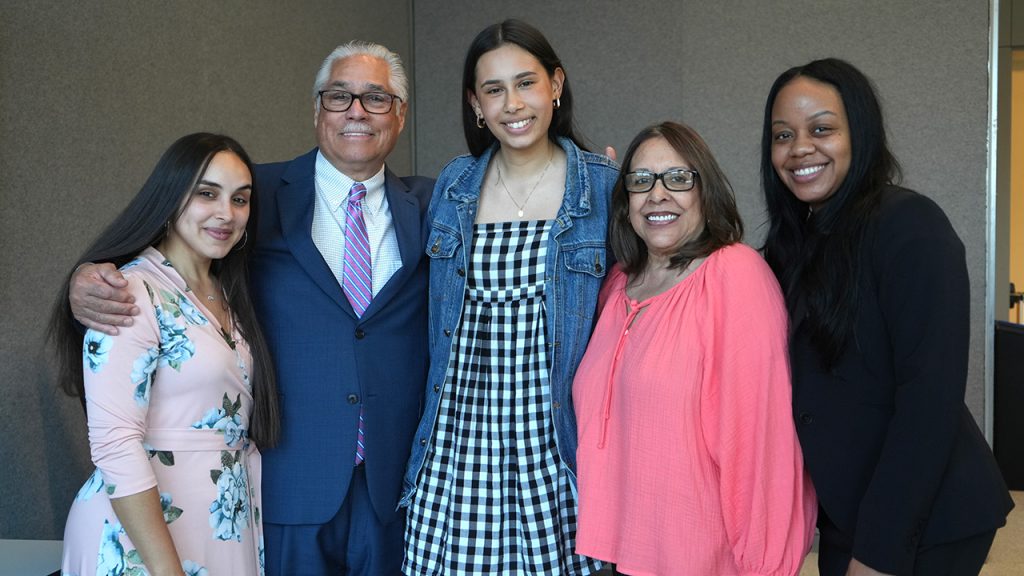
In addition to Kaufman and Espinal, 13 other students and alumni received awards from the Fulbright U.S. Student Program:
Caroline Albacete, FCRH ’21, from Pennsylvania, a member of the Honors Program who earned a bachelor’s degree in international studies, with minors in French and history, was awarded an English teaching assistantship to Colombia.
Michael Au-Mullaney, from the Bronx, a doctoral candidate in philosophy in the Graduate School of Arts and Sciences, received a research award for study in Denmark.
Richard (Ricky) DeSantis, from California, a doctoral candidate in philosophy in the Graduate School of Arts and Sciences, received a Fulbright-ifk Junior Fellowship for study in Austria.
Alexandra (Alex) Huey, FCRH ’23, from Florida, who earned a bachelor’s degree in mathematics and computer science, with a minor in economics, received a Fulbright-CY Initiative Award to pursue a master’s degree in Paris, France.
Nathan (Nate) Johnson, LAW ’22, who is from New York City and earned a juris doctorate, received a Fulbright/Ulster University Award to pursue an LLM in Northern Ireland.
Kathleen Kye, FCLC ’22, from New Jersey, who earned a bachelor’s degree in sociology and Spanish studies, with a minor in psychology, was awarded an English teaching assistantship to Argentina.
Sophia Maier, FCRH ’23, from New York state, who earned a bachelor’s degree in American studies and will receive a master’s degree from the Graduate School of Education this spring, was awarded an English teaching assistantship to Spain.
Isaac Mullings, FCRH ’24, from the Bronx, a member of the CSTEP program who earned a bachelor’s degree in psychology, received a research award for study in Ghana.
Anna Nowalk, FCLC ’23, from Virginia, who earned a bachelor’s degree in theology religious studies with minors in philosophy and peace and justice studies, received a research award for study in El Salvador.
Christian Ramirez, FCRH ’23, who is from Minnesota and earned a bachelor’s degree in English and theology religious studies, with a minor in Spanish, was awarded an English teaching assistantship to Colombia.
Margaret (Daisy) Salchli, FCRH ’24, from Chicago, who earned a bachelor’s degree in political science, international studies, and Chinese studies, was awarded an English teaching assistantship to Taiwan.
Emilia Tesoriero, FCRH ’24, from Connecticut, who earned a bachelor’s degree in international political economy with a minor in Spanish, was awarded an English teaching assistantship to Spain.
Connie Ticho, LAW ’24, from Pennsylvania, received a research award for study in South Africa.
One alumnus is a Fulbright alternate:
Hanif Amanullah, FCRH ’24, from Texas, who earned a bachelor’s degree in international studies with a minor in environmental studies, was named an alternate for a study and research award to Kenya.
Editor’s note: This story has been updated from an earlier version.
]]>“I just want to know that I’ve helped as many students as possible, especially students who have experienced what I’ve experienced,” said Pacheco, a New York City Department of Education administrator who is graduating this May with his Ed.D. from the Graduate School of Education. “I want to make sure that our kids know [their worth].”
Pacheco serves as executive director of school support and operations for New York City Transfer High Schools, a district of 42 schools that supports students who have dropped out or fallen behind in credits. He enrolled in GSE’s highly ranked Educational Leadership, Administration, and Policy program to help him better support his students. His coursework has taught him how to lead with empathy, apply his research to his work, and learn from his failures, he said.
“It’s really changed the way that I look at my work, from the small things to the big things,” said Pacheco.
Earning a $500K Grant to Help Students, Thanks to Fordham
In his Leading Instructional Improvement course at Fordham, which teaches students how to apply academic theories to real-life problems, Pacheco and fellow doctoral student John Sullivan designed a remote academic program that helps nontraditional students earn their high school diploma. In 2022, Pacheco and Sullivan were awarded a $500,000 grant from the New York City Department of Education to turn their idea into reality.
This spring, they will launch a three-month-long pilot program based on their idea, which will support the city’s high school students who are struggling to complete their high school education. Among the students are new migrants who are simultaneously working to support their families. Their program will allow students to continue working while remotely completing their high school education.
“[Their] remote academy is an exemplar for the kind of theory-to-practice connections we hope doctoral candidates will make, and will be a great benefit to NYC youth,” said associate professor Elizabeth Stosich, Ed.D., who taught their Leading Instructional Improvement course.
‘I Love to See Our Kids Succeed’
Pacheco previously worked as a field support liaison at New York City Transfer High Schools for four years. He’s also worked in nonprofits and the city’s Department of Youth & Community Development. More recently, Pacheco helped to prepare a grant proposal on behalf of New York City Transfer High Schools that received about a million dollars to support students in their schools who are from asylum-seeking families, he said.
“Our kids are some of the most vulnerable. At some point in their lives, they experienced something that set them back in their academic career,” Pacheco said. “I love to see our kids succeed … Anything that I can do to help a kid graduate and get on a career path, I’ll do.”
]]>BJHP is a Fordham research initiative that preserves the stories of the Jewish Bronx. The project originally began with Sophia Maier, FCRH ’23, who documented the stories of more than 75 members of the Jewish community who once called the Bronx their home. Now, in the months before Maier earns her master’s degree in teaching from the University this spring, she’s teaching a new group of undergraduates how to continue the project.
Oral History with a Professional Historian
About a dozen undergraduate and graduate students joined BJHP this semester, thanks to an Arts and Sciences Deans’ Faculty Challenge Grant. The students, who study subjects from economics to theology to history, are interested in BJHP for different reasons, said Daniel Soyer, Ph.D., BJHP director and history professor. Some are Jewish themselves, with family ties to the Bronx. Others are interested in Jewish studies and history.
During a recent training session, the students met Leyla Vural, a New York City-based oral historian. Vural, who has a master’s degree in oral history from Columbia University, has interviewed recipients of the Nobel Prize, scientists, artists, trade unionists, LGBTQ New Yorkers, and more. She spoke with the students about how to approach their interviews and navigate the ethics of their work.
“What stuck with me most was when she talked about how the role of the interviewer was, above all, to listen,” Maier said.
Jews in the Bronx: An Important Part of NYC History
In another session, Soyer taught students about the history of the Jewish Bronx.
“The Bronx was once the most Jewish borough—almost half Jewish—and now it’s the least,” said Soyer. “Through [BJHP], we’re capturing an important part of Bronx, New York, and Jewish history that’s been understudied.”
As part of their training, the students also learned from Maier about how to conduct interviews, using a 27-page guidebook developed by Maier herself.
“I’m considering going for my Ph.D., so it’s great to get that experience, working with undergraduates,” said Maier, an aspiring history teacher who earned her bachelor’s degree in history from Fordham College at Rose Hill and is now part of the accelerated master’s degree program at the Graduate School of Education.
This summer, Maier, Stovall, and Soyer will teach high schoolers about the history of Jews in New York in a weeklong course, part of Fordham’s annual summer programming. Their curriculum will include oral histories from BJHP, said Soyer.
Having a Cup of Tea and ‘Just Listening’
Being a part of BJHP means so much, said Maier, who teared up while speaking.
“It’s changed the trajectory of my life. I love doing it, and I’ve met so many amazing people. … These people are predominantly elderly, and they really appreciate that some young person is taking an hour or two out of their day to sit down, have a cup of tea with them … and just listen,” said Maier, noting that the oldest person she has spoken with is 97. “To have their life stories recorded and made available [especially for their families]is a gift without value.”
]]>Directed by serial entrepreneur and executive director Al Bartosic, GABELLI ’84, the Foundry also oversees the Fordham Angel Fund, which offers investments of up to $25,000 to the University’s active student and alumni founders.
Fordham Magazine caught up with a handful of alumni who received funding, coaching, or other support from the Foundry to find out where they—and their businesses—are now, and how they got there.
Mary Goode, FCRH ’20
Founder and CEO, Nantucket Magic
Fordham Degree: B.A. in Economics
The launch: I grew up on Nantucket Island and watched the tourist landscape change dramatically over the years, becoming increasingly popular yet harder to navigate. The company uses local expertise to offer hotel-like concierge service and amenities to vacationers in Nantucket, Massachusetts, and Palm Beach, Florida, including pre-arrival fridge stocking, dinner reservations, private chefs, backyard movie nights, beach picnics, wellness experiences, and more.
The challenge: Our biggest challenge has been navigating how to scale the business while maintaining exceptional service. To surmount this, we have recruited hospitality experts to work seasonally in both locations.
The assist: The Foundry has played a huge role in the success of my business! I learned so much during the process of the pitch competition alone. The actual funds I won helped us pay for marketing campaigns as well as expand our team, among other things.
The goal: I have been trying to broaden the definition of what success means to me. No matter what happens in the future, what I have created so far feels like an immense personal success, chiefly because of the incredible people I have worked with over the past three years.
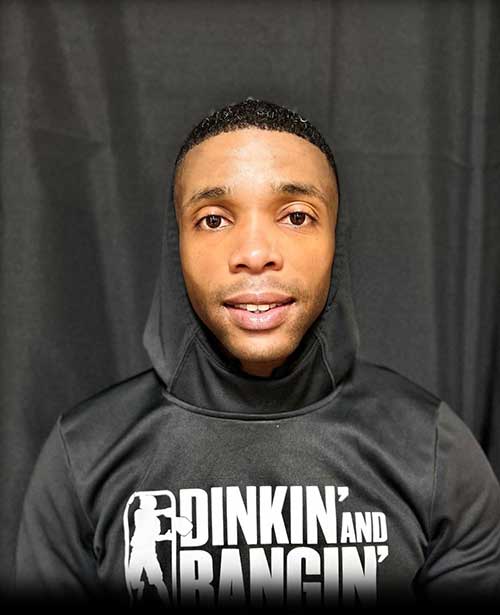
Marquice Pullen, GSE ’21
Co-Founder, DAB Pickleball
Fordham Degree: M.S.E., Curriculum and Teaching
The concept: DAB Pickleball is a one-stop shop for pickleball players worldwide. Comprehensive infrastructure, certified coaching tips, quality equipment, competitive prices. Events, tournaments, and a thriving community. Your ultimate pickleball resource. I can’t take credit for the idea. My business partner and brother, Antonio, stumbled upon the sport at Acworth Community Center in Georgia.
The process: We participated in three pitch challenges: Fordham Foundry Rams Den, Fordham vs. Bronx, and Black Ambition, all within one year, and were successful in all three, thanks be to God. Social media marketing, risk management, inventory management, tax filing, bookkeeping, and opening our first facility in July 2023 were all challenging aspects of the process. However, we found our momentum in late December 2023.
The foundation: Initially unfamiliar with Fordham University, my enrollment through the Army Civilian Schooling (ACS) program, driven by my aspiration to become an instructor at the United States Military Academy, inadvertently initiated our entrepreneurial journey. Rooted in Jesuit principles, my education at Fordham eventually led me to the Fordham Foundry. Without Fordham University as a catalyst, I might not have discovered the Foundry or ventured into entrepreneurship.
The win: Success is evident through our community of players and dedicated volunteers and supporters. Seeing the smiles on our consumers’ faces as they enjoy the game of pickleball and, more importantly, witnessing the competitive spirit of our elderly pickleball players, is a success story in itself.

Rachel Ceruti, GSAS ’20
Founder and CEO, Reclypt
Fordham Degree: M.A. in International Political Economy and Development
The vision: I kind of fell into the sustainable fashion scene in New York City and upcycling—when you or designers take something that was going to be thrown away and repurpose it, diverting textiles from landfills. I started a blog that transitioned into a marketplace for fashion, but our community told us they wanted to do the upcycling, not just buy it. We listened, and our mission is to use our platform to explore circular economy structures, with Reclypt as a hub that explores how we create change.
The challenges: Funding really comes to mind. You can’t rely on unfair wages and volunteers. Another challenge, too, is letting people know why circular fashion is needed and what it is.
The assist: I would go into the Foundry space and pop ideas off of the other entrepreneurs and the Foundry team. I benefited from the free office hours with a lawyer. The business aspects that are behind the scenes, I would have never been able to navigate without the Foundry.
The next step: We want to host consistent events; be able to grow and hire, including start monetizing my team’s time; gain more visibility; and establish a steady revenue stream.
Usman “Ozzy” Raza, PCS ’14, GABELLI ’21
Founder and CEO, Equepay
Fordham Degrees: B.A. in Economics, Executive M.B.A.
The concept: Equepay is at the forefront of simplifying billing and payment processing, not just in health care but extending our innovative solutions beyond. We aim to convert the complex financial operations in hospitals and clinics into streamlined, user-friendly processes, ensuring easy and efficient financial management for all involved.
The launch: Equepay was born out of discussions with friends in the health care sector who highlighted ongoing challenges with payment processing and collections. Recognizing the untapped potential in this underserved market, I founded Equepay. Since launch, Equepay has been expanding its solutions across various hospitals in the U.S.
The foundation: My EMBA from Fordham has been crucial in shaping my entrepreneurial journey. The knowledge and skills acquired laid a solid foundation for Equepay’s strategies and operational methodologies.
The goal: Success is an evolving target. Our immediate goal is to integrate our platform into 196 hospitals by the end of the year, continuously enhancing our services to meet the growing needs of the healthcare sector.
Emmit Flynn, FCRH ’21
Co-Founder, Awful Cloth
Fordham Degree: B.A. in English
The brand: We started Awful Cloth to be an online apparel company for street and lounge wear, with a lot of colorful designs and bright, vibrant ideas. All of them were hand-drawn original designs and I was the designer.
The launch: For eight or 10 months, it was all planning. We got all the domains, Twitter, and Instagram very early on before we had anything produced. That made all the difference when we finally did start to get traction. Then it was a lot of workshopping and pushing it out to our friends and family to see what the response was.
The hurdles: The true hurdles were things that are intangibles. It wasn’t “where do we find this factory” or “how do we do this.” Those things were small hurdles, but we were so driven that there was nothing like that that would stop us. It was more about the mental hurdles: having patience and confidence and being sure of ourselves. Especially early on when things were slow, and we weren’t making any sales, and we weren’t making any profit.
The win: We recently sold the business to a medium-sized retail group called Lilac Blond. We were very happy to do it because selling was a goal of ours and we knew these people—and we were sure that they wanted the best for the brand.
]]>In the Ignatian Public Speaking workshop led by Robert Parmach, Ph.D., director of Ignatian mission and ministry, students learned about the finer points of “SPATE”—stance, projection, articulation, tone, and eye contact.
“We want to help graduate students develop skill sets that link to their Jesuit education,” said Parmach. In his introductory remarks, he invoked a lesson from St. Ignatius, founder of the Society of Jesus, reminding students that “developing the interior life … animates our spirit and connects us deeper to God and others.”
“Think about it,” he said. “The way you hold yourself in front of an audience demonstrates the kind of person you are and your character … The techniques we teach you provide ways to use your body and voice to motivate, lead, and transform others. It joins the mind, body, and soul to empower others and yourself along the way.”
In the workshop, the students practiced speaking in front of each other. Each was handed a written prompt, then given three minutes to digest it and a minute to summarize it for the group.
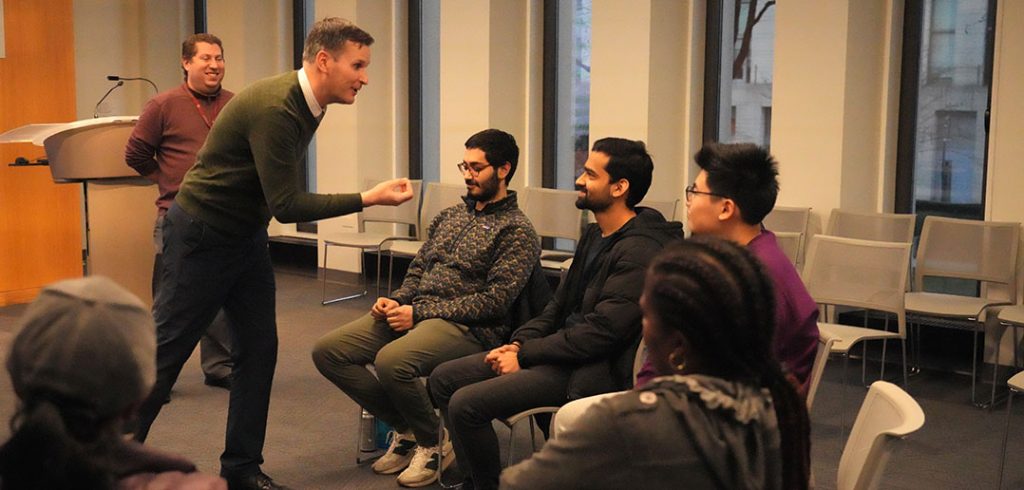
Lisa Cummings, a student at the Graduate School of Education currently teaching at the Orchard Collegiate Academy, said she felt “uplifted” by the workshop.
“I’ve been able to gather some useful tips, and it’s motivated me to try to create a workshop for my own students,” she said.
Asked to identify the one area of SPATE she felt she needed the most improvement, Cummings picked articulation. She recalled a mistake she made as an undergraduate at SUNY Morrisville.
“I had the opportunity to speak at my graduation, and I turned that opportunity down because of my fear of not being able to articulate myself well enough,” she said.
“That was a once-in-a-lifetime opportunity for me, and having passed up that opportunity, I really have made it a point to push myself to overcome that fear.”
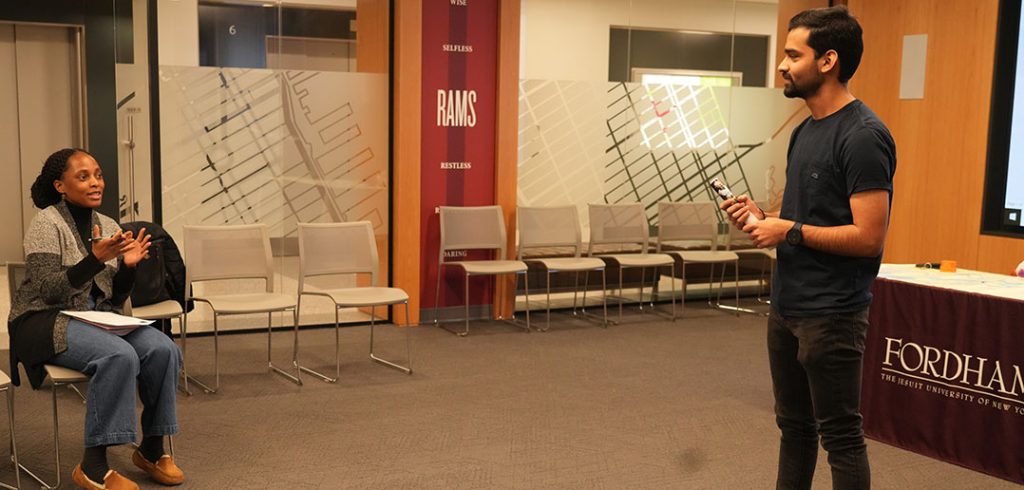
Jay Vaghani, a Gabelli School of Business graduate student pursuing a master’s degree in quantitative finance, likewise found the workshop pushed him beyond his comfort zone. For his speech, he was given a prompt describing how the artist Sting reacted to a negative review of his music.
Vaghani, a native of Surat, Gujarat, India, who moved to the United States with the goal of transitioning from engineering to finance, has been hesitant to speak in public since he was a child.
He found it useful to focus on his tone and articulation. Although he was unfamiliar with Sting before reading the prompt, he said the short time he was given to prepare was paradoxically helpful because it forced him to focus on the content he’d be delivering and not the anxiety he felt.
“It was a great experience,” he said. “I look forward to doing another one.”
